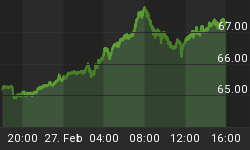Jonathan Wheeler quit his job as a software engineer at Goldman Sachs earlier this year to start a non-profit foundation with a unique mission: Air drop $300 million worth of bitcoin into economically-depressed Venezuela.
As the official (unpublished) inflation rate has skyrocketed to 14,000 percent, Venezuelans' affinity for bitcoin has intensified. Thousands of Venezuelans are reportedly mining crypto, benefiting from cheap, government-subsidized electricity. This fact isn't lost on the government, which has arrested cryptocurrency miners and users, even as the country's Treasury has launched the petro, Venezuela's "oil-backed" cryptocurrency, which it has touted as the country's financial salvation.
However, as CoinDesk pointed out in a recent profile, Wheeler is afraid to say too much about his project - which recently became involved with a handful of Venezuelans on the ground.
The former bank employee turned developer doesn't want to say too much about his newest project, an effort he believes could soon help people living under one of the world's most oppressive monetary regimes. That's because he needs others to help him with his mission – getting bitcoin in the hands of Venezuelan citizens by way of a massive mobile airdrop.
The problem is that spilling too much intel could put those he's working with in danger.
The Venezuela government routinely arrests people with deviating political opinions and has even gone as far as to ban technologies citizens have used to circumvent its censorship. That's not to mention the fact that Venezuela's government has already launched its own cryptocurrency, the petro, which it's painted as key to its economic revival. Related: Uber Heads Back To London After Regulatory Victory
Wheeler has put together a team that's developing a mobile app, called Azul, which he hopes will help him solicit the millions in donations the company will need to make its project successful. So far, Wheeler's pitches to investors have elicited some interesting replies.
Wheeler's original pitch, presented at the BitDev meetup in New York City in February, was to raise millions of dollars from venture capitalists. But as he and Crena have pitched investors, several have pressured them to launch a crypto token of their own through an initial coin offering (ICO).
According to Wheeler, the VCs said that with the market for crypto tokens so hot right now, he and his team would be able to raise much more money.
But Wheeler and his partner decided against the ICO route. Given that Venezuelans have limited access to technology, he's hoping to make claiming the money as simple as possible. Bitcoin is probably the best choice, Wheeler and his team believe - particularly since developers added the lightning network, which is intended to speed up transactions by moving some data off of the bitcoin blockchain.
"We're focused on bitcoin because we think it's the most viable solution with the most worldwide potential," Wheeler said.
Wheeler is seeking a partnership with the Human Rights Foundation and the United Nations, and has discussed the consequences of injecting a pile of money into a country with a damaged economy. Asked why Venezuela, Wheeler shrugged, and replied "you've got to start somewhere." But Venezuela is probably as good a candidate as any: Many Venezuelans are already familiar with bitcoin, thanks to the speed with which the country's economy has collapsed. And the people are in dire need: Thanks to food shortages, 75 percent of Venezuelans lost at least 10 kilos last year, according to one study.
Can Wheeler save Venezuela from "the Maduro diet" with his bitcoin injection? Or will the Venezuelan government find a way to seize the money?
By Zerohedge.com
More Top Reads From Safehaven.com:
















